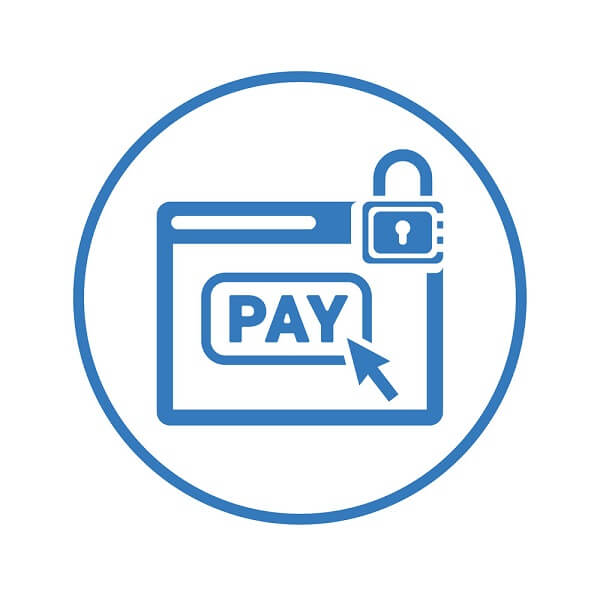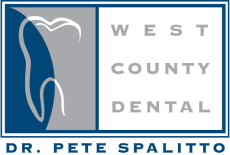-
How Soda Affects Your Teeth
Whether you call it soda, pop, cola, or coke, a soft drink is a cool, refreshing, delicious treat. Unfortunately, it’s also truly terrible for you. It’s full of empty calories and regular consumption can lead to conditions like obesity, osteoporosis, and diabetes. But here’s another distressing fact about soda: it’s terrible for your teeth.
Obviously, the sugar in soda is a major issue. Sugar feeds bacteria in your mouth, causing tooth decay. An environment full of bacteria allows plaque to build up, leading to gingivitis, cavities, and gum disease. But the sugar in soft drinks isn’t the only ingredient that is harmful to your oral health. Soda contains phosphoric acid, which is what makes it fizzy. Laboratory research has shown that this acid can erode tooth enamel. Once tooth enamel erodes, there’s no way to replace it. Soft drinks, juice, and sports drinks can all cause damage to the enamel.
You might think that drinking sugarless soft drinks will be less harmful. Sadly, this is not the case. Diet soda still contains acids, and still causes erosion and tooth decay. You can’t escape the damage by drinking light-colored soda, either. While light-colored soft drinks won’t stain as much as the darker beverages, they’ll still erode your enamel and cause cavities. In fact, some light-colored soft drinks contain flavor additives that aggressively attack the teeth.
What’s the solution to this problem? Do you have to give up your favorite fizzy treats for good? Maybe not. If you don’t want to completely forgo soft drinks, just have them in moderation and follow these tips to protect your enamel:
- Drink more water and rinse your mouth after drinking soda. Water will help prevent sugar from sticking to your teeth.
- Consider a fizzy water. If you miss the fizz of soda, try carbonated water.
- Use a straw to drink your soda, and drink quickly. You don’t want to allow soda to rest on your teeth. This is also a good reason not to drink soft drinks close to bedtime.
- Wait at least an hour after a soda to brush your teeth. Brushing too soon can further damage your enamel.
- Only drink soft drinks at mealtimes. The food will help reduce the effects of the acid by maintaining the mouth’s appropriate pH balance.
- See your dentist regularly. Having a cleaning and a checkup twice a year helps keep your teeth healthy. A dentist who gets a good look at your teeth on a regular basis will be able to alert you to signs of erosion or any other issues that may arise.
At West County Dental, we provide personalized family dental care using state of the art procedures. Adhering to a standard of excellence, we provide comprehensive treatment, from preventive care to restorative dentistry. When you reserve a visit with West County Dental, you can be confident that our team of highly-trained dental professionals will provide you the care you need for a healthy smile. Call (314) 488-2921 or contact us through our website today!
-
Is it Snoring or Sleep Apnea?
When is a snore more than just a snore? When it’s a symptom of obstructive sleep apnea (OSA). The most common breathing-related sleep disorder, obstructive sleep apnea causes you to stop and start breathing several times while you sleep. And while many people snore, loud, frequent snoring is one of the more noticeable signs of obstructive sleep apnea.
How do you know whether you’re someone who simply snores or someone with sleep apnea? First, understand that everyone who snores is at risk for sleep apnea, and your risk goes up with the volume of your snores. Because about 70 percent of people with sleep apnea snore, snorers should consider an apnea evaluation. To diagnose OSA, doctors use a sleep test. Not sure you want to go through all that? You absolutely should if you have other symptoms of sleep apnea, like daytime drowsiness, depression or anxiety, cognitive or memory problems, or health conditions like high blood pressure or arrhythmias. People with sleep apnea also often wake in the morning with a headache, dry mouth, and a sore throat.
Is sleep apnea really that serious? In a word, yes. In fact, people with apnea are five times more likely to die earlier than those without this condition. OSA can cause you to stop breathing 30 times or more each hour, depriving your body of oxygen and preventing it from expelling carbon dioxide. OSA can change the way your body uses energy, trigger the release of stress hormones, and prevent you from getting high-quality sleep. This all can lead to health problems like weight gain, memory loss, and skin aging. There’s also evidence that obstructive sleep apnea increases your risk of high blood pressure, heart attacks, stroke, congestive heart failure, diabetes, atrial fibrillation, some cancers, and even sudden death.
Some people hesitate to seek treatment for sleep apnea because they believe their only option is a CPAP machine. In fact, this is not the case. While a continuous positive airway pressure (CPAP) machine is a very effective tool for treating OSA, there are others available. You could try some lifestyle changes, like losing weight, exercising regularly, avoiding alcohol, or quitting smoking. There are also nasal strips to keep the nose open and medications for blocked sinuses. Your doctor may recommend a custom-fit mouthpiece to keep your airways open while you’re sleeping. In some cases, surgery might be necessary to correct a deviated septum, tonsils, excess tissue, or nasal polyps. Talk to your doctor or dentist to find the right solution for your sleep apnea.
At West County Dental, we provide personalized family dental care, including sleep apnea treatment, using state of the art procedures. Adhering to a standard of excellence, we provide comprehensive treatment, from preventive care to restorative dentistry. When you reserve a visit with West County Dental, you can be confident that our team of highly-trained dental professionals will provide you the care you need for a healthy smile. Call (314) 488-2921 or contact us through our website today!
-
Bleeding Gums
Have you noticed blood when you brush? It’s not uncommon for gums to bleed, and it could be something easy to fix. However, bleeding gums aren’t something to be ignored because they can sometimes indicate a major issue with your oral or overall health.
First, let’s rule out some causes of bleeding gums that aren’t very serious. You could be brushing too hard, using a toothbrush that’s too firm, or flossing incorrectly. Brush teeth gently with a softer brush and try a different flossing technique, and you may fix the problem. If you’re pregnant or taking new medication, that could also be the cause. But if none of these things are a factor, there may be something more serious happening.
- Gum disease is the leading cause of bleeding gums. It starts out as gingivitis, an inflammation of the gums that causes red, irritated, swollen gums. Gingivitis results from plaque build-up on your gumline, and you can alleviate it by taking better care of your teeth. Brushing twice a day, flossing at least once, rinsing with an antibacterial mouthwash, and seeing your dentist twice a year can take care of gingivitis.
- Left untreated, gingivitis turns into periodontitis. Also called periodontal disease, this is a long-term condition that’s very serious. Gums affected by periodontal disease get infected and inflamed and pull away from the roots of your teeth. This can lead to your teeth getting loose or separating. You may have bad breath, a bad taste in your mouth, changes in your bite, and swollen, tender, red gums. Without proper treatment, you can lose some teeth.
- There are other illnesses that can cause gums to bleed. Swollen, bleeding gums can be a symptom of diabetes or even leukemia. Thrombocytopenia can cause your gums to bleed without stopping, and so can hemophilia.
- Changing other habits can help, too. If you smoke, please quit. If you’re under a lot of pressure, find healthy ways to manage your stress.
If you have bleeding gums for more than a week or two, it’s time to see your dentist. At West County Dental, we provide personalized family dental care using state of the art procedures. Adhering to a standard of excellence, we provide comprehensive treatment, from preventive care to restorative dentistry. When you reserve a visit with West County Dental, you can be confident that our team of highly-trained dental professionals will provide you the care you need for a healthy smile. Call (314) 488-2921 or contact us through our website today!
RECENT POSTS
categories
- Uncategorized
- crowns
- dental veneers
- dentists
- full service dental practice
- porcelain veneers
- same day crowns
- Dental Cosmetic Surgery
- Dental Implants
- Dentistry
- Dentist Review
- Laser Dentistry
- Root Canal
- Sedation Dentistry
- Dentures
- Cleanings
- Teeth Whitening
- Abscessed Teeth
- Cosmetic Dentistry
- Infographic
- Cavities
- Sealants
- Gum Recession
- Periodontal Disease
- Dental Health
- Family Dentistry
- Dental Emergency
- Invisalign
- Filling
- Same Day Dental Procedures
- Gum disease
- Sleep Apnea
Archives
2022
2021
- December (2)
- November (1)
- October (3)
- September (2)
- August (2)
- July (2)
- June (2)
- May (2)
- April (2)
- March (2)
- January (2)
2020
2016
2015
- December (4)
- November (3)
- October (3)
- September (4)
- August (4)
- July (4)
- June (4)
- May (3)
- April (3)
- March (4)
- February (5)
- January (6)

